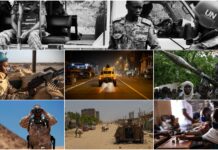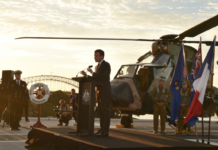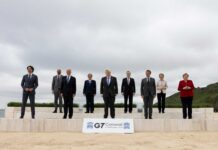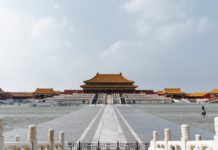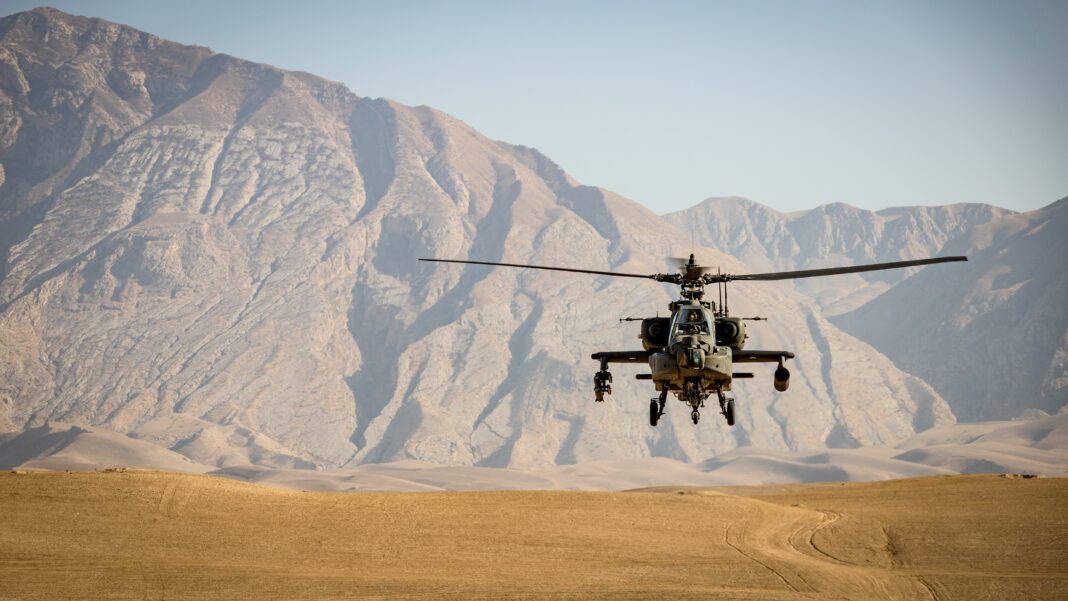The spectacular scenes from Kabul airport, in which US and Western armies and personnel hastily departed from Afghanistan as the Taliban regained power, raise many questions about the causes and implications of this major international development. This article analyses some of these questions including what this means for the US, Europe and China.
- The US had long wanted out of Afghanistan and the Middle East. America’s withdrawal from Afghanistan is a foretold story and should come as no surprise to the general public and the foreign policy establishment. President Obama’s troops surge during his first mandate was a mirage that confused many at home and abroad. The moment that US special ops killed Osama Bin Laden in 2011, Washington sent repeated signals and explicit calls for a permanent withdrawal from Afghanistan. It was therefore always a matter of when it would happen, with most observers betting on it happening sooner rather than later.
- The West’s missions and objectives in Afghanistan were confused from the beginning. The first objective was always to punish and remove the Taliban from power for harbouring Al Qaeda (AQ), and to kill AQ’s leadership and intellectual authors of the 9/11 attacks. This objective was confused with grand ideas about ‘nation and state-building’ that were too close in spirit and aspirations to the notion of ‘mission civilisatrice’ practiced during centuries by European colonial powers. Nation building in faraway lands seldom works, with the only two most recent successful cases being post-WWII Germany and Japan, both of whom were highly industrialised nations with strong institutions prior to the war.
- Washington’s withdrawal from Afghanistan is a reflection of America’s shifting foreign policy priorities, both domestically and abroad. Americans quickly grew out of favour of waging wars in faraway deserts. Their initial and natural outrage for the 9/11 attacks soon gave way to a lack of appetite for a war which, especially after the killing of Osama Bin Laden, meant very little to them. The 2008/9 financial crunch and the resulting identity crisis further contributed to an increased appetite for isolationism that culminated in President Trump’s victory at the 2016 election. President Biden’s foreign policy differs from Trump’s both in terms of style and in its approach to diplomacy and climate change, but it has cemented a clear shift to the Indo-Pacific and to China that started with Obama’s Pivot to East Asia.
- The US agreement with the Taliban will be studied as a prime example of a very bad deal. President Trump’s deal with the Taliban leadership for a complete withdrawal of US troops was made in exchange for two guarantees: that the Taliban would never sponsor and harbour terrorists again, and that they would reach a peaceful agreement with the Afghan government in Kabul and the Afghan Army. We can immediately highlight two major flaws in this agreement. Firstly, there is no way the US can enforce the former, absent a new future intervention of sorts. Secondly, sidelining the Afghan government in the US-Taliban deal sent a clear message to the Taliban that the US could not care less about what became of them after US troops left the country. It also crushed the morale of Afghan soldiers.
- Hearts and minds continue to matter more than boots and guns. It may sound like a cliché, sixty years after the Cuban Revolution and the Vietnam War, but the speed at which the Afghan government and army collapsed as the Taliban closed in around Kabul can only be explained by the power of ideas. Twenty years of American and Western occupation, and billions of dollars invested in building and training the Afghan army, were not enough to win this asymmetric war with the Taliban. Despite many blows to the latter and the horror at which westerners look at their model of society, the West clearly failed to win the hearts and minds of Afghans, especially those outside the main urban centres.
- China will capitalise on the West’s fiasco in Afghanistan. The world has watched as US and Western troops and personnel evacuated the country against the clock and with the Taliban closing in. The unfolding drama, with horrific humanitarian scenes, has dealt a big blow to American and Western credibility. They went in with all their force and they bought legitimacy with promises of democratic nation-building, yet twenty years later they have left the country behind and handed in the keys to the second Taliban generation. China will not miss the opportunity to capitalise on this fiasco and further advance a narrative of American decline. The West used hard power to go into Afghanistan, but it is their soft power that has been dealt the biggest blow.
- The Taliban have learnt a few things and they will need China’s support, which will come at a cost. The Taliban seem intent on avoiding being seen as a pariah government, as was the case during their first stint in power twenty years ago. They have shown some restraint, and their public statements – even if not very credible -, indicate they are eager to be seen as having changed. China has taken a pragmatic stance and recognised the Taliban, yet Beijing harbours no aspiration to change Afghanistan. Their immediate priority is to stabilise the security situation, prevent the country from becoming a safe haven for Uyghur fighters and Islamic radicals, and contain violence so that it does not spread to Central Asia. In the medium term, China could seek to incorporate the country to its Belt and Road Initiative.
- Europe cannot continue to play America’s junior partner role and needs to develop its own capability. Against a context of declining American power and a rising China, European leaders increasingly talk of ‘strategic autonomy’, a ‘return to geopolitics’ and the need to re-learn how to use the ‘language of power’. The recent developments in Afghanistan, in which Europe had no say whatsoever in the US-Taliban deal and the future of the country, forcing European delegations and armies to scramble their personnel and flee from the scene, gives impetus to this agenda. In particular, the EU Strategic Compass – to be announced in 2022 – presents an opportunity to redefine and strengthen the EU’s role as a global security and defence actor. Yet Europe is no US or China, and so the key will be in adopting a clear global strategy which proportions EU aspirations to EU capabilities.



